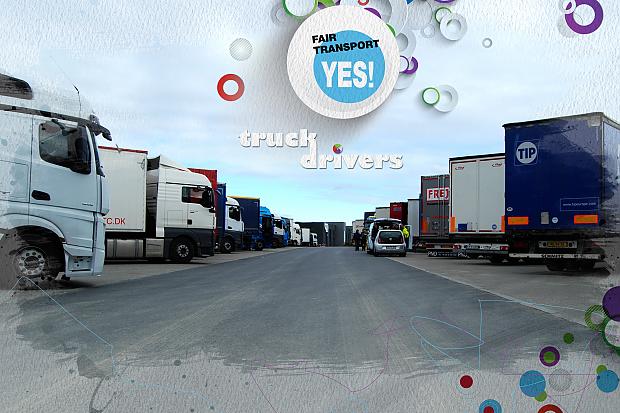Commission proposal would legalise currently illegal practices in road haulage
Commission proposal would legalise currently illegal practices in road haulage

SP Euro-MP Dennis de Jong can find nothing positive in proposals on road haulage presented today by the European Commission. “Only a few weeks ago the Commission presented its ideas on a social Europe,” he recalls. “Obviously these were nothing but fine words. Now it comes down to tackling the exploitation and oppression of truck drivers, the Commission is opting for further liberalisation. In doing so they are proposing to legalise what up until now has been illegal. Drivers can clearly expect nothing from this Commission.”
If the proposals go through, Eastern European drivers will be allowed to make as many domestic journeys as they wish within a five-day period in a member state to which they have made a delivery from abroad. “While monitoring of the existing rules still isn’t in order, the Commission is electing once again for making them even more flexible. The minimum wage and collective agreements for foreign drivers will only kick in after three days. What this means in practice is that eastern European drivers will be allowed to work for starvation wages. In my view this is completely asocial.”
Cabotage has always been restricted. The term means the picking up and dropping off of goods within a single country by a diver working for a firm based in a different member state. Increasing the limit on the number of such journeys which may be taken makes it certain that competition will get out of hand, as De Jong explains. “A Dutch driver told me ‘we are simply losing out; soon we’ll be driving for nothing.’ This man is a self-employed driver with his own truck, and has to cope with the social dumping made possible by the Commission. In the end we will have no transport sector at all left in the Netherlands.
The proposed measures to tackle the problem of mailbox companies – corporations which register as active in countries where they are not, in order to avoid paying higher taxes in their true sites of activity – are much too mild, while De Jong is also unenthusiastic over plans to monitor compliance with remaining rules on cabotage. “As things stand all drivers need is for the rules to be enforced,” he says. “That clear agreements will be reached with member states on the number of controls to be performed is in itself good news. But the Commission believes it will be fine to omit controls at companies that have not previously committed violations. This completely ignores the enormous pressure the sector is under. Passing with flying colours once does not mean that the firm in question won’t break the rules in the future. Drivers have certainly not greeted this proposal joyfully. One trucker told me today ‘This is making me really fed up. It’s a blank cheque for anyone who wants to bugger the whole thing up, making the loopholes even wider,’ which is how it seems to me too.”
- See also:
- Europe
